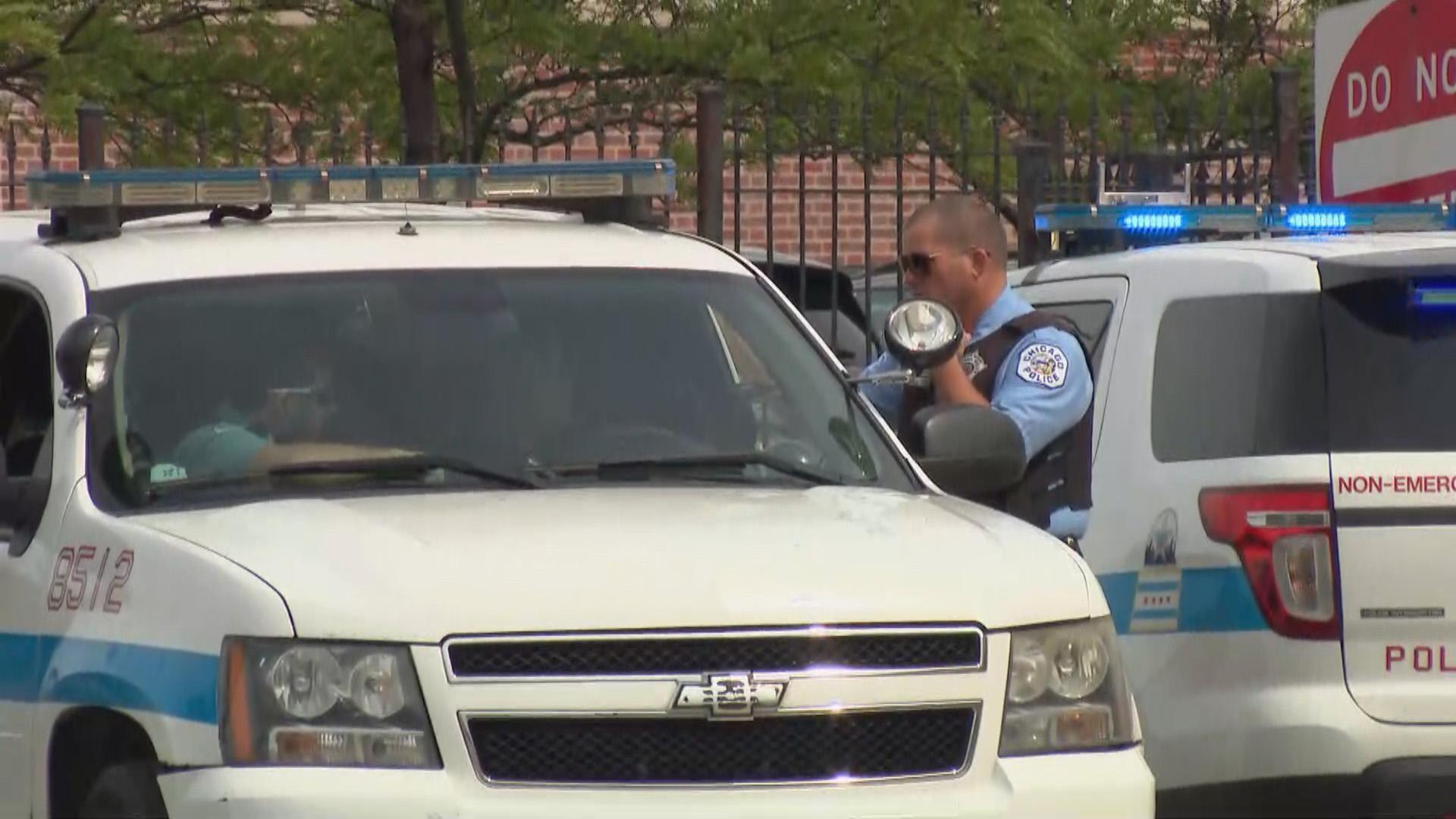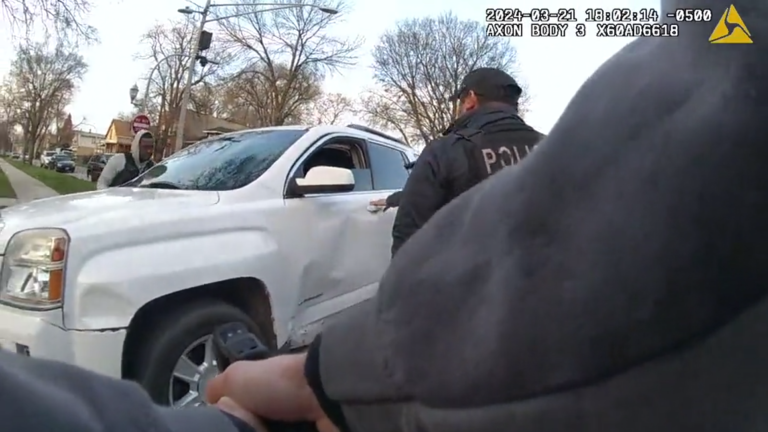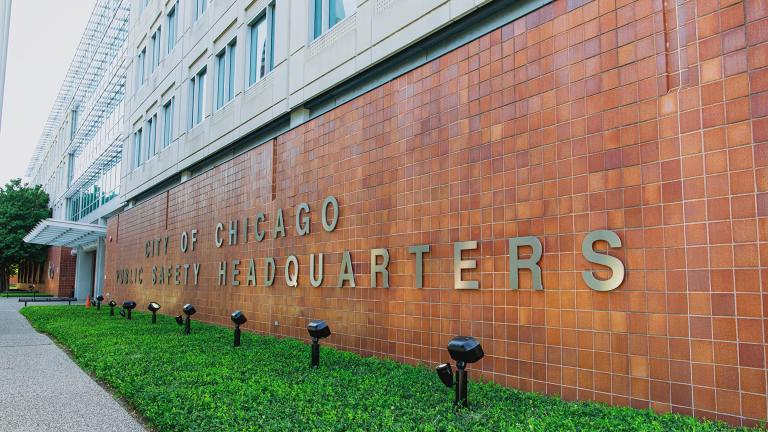 (WTTW News)
(WTTW News)
The Chicago City Council voted 17-33 to reject an effort backed by the city’s largest police union to upend the system used to punish officers for 60 years, triggering what is likely to be a fierce legal fight that will determine whether, and how, city officials can hold officers accountable for serious misconduct.
In a separate vote, the City Council voted 42-8 to extend the union’s contract for an additional two years in return for bigger than expected raises and bonuses for officers.
As part of negotiations over the city’s labor agreement with the Fraternal Order of Police, Lodge 7, an arbitrator ruled that officers had the right to choose how their cases were resolved. It is unlikely that few, if any, officers would decide to give the police board the final say rather than an arbitrator, who must be appointed with the blessing of union leaders.
After hours of debate, the City Council voted to reject that decision, sending it back to the arbitrator for reconsideration, as Mayor Brandon Johnson, Chicago Police Board President Ghian Foreman and Community Commission on Public Safety and Accountability President Anthony Driver Jr. had asked.
If the arbitrator’s decision is upheld, Chicago Police officers facing a suspension of at least a year or termination will be allowed to choose to have their cases decided by an arbitrator, behind closed doors, rather than by the Chicago Police Board, which holds its meetings in public and allows input from Chicagoans.
Ald. Maria Hadden (49th Ward) urged her colleagues to vote to reject the arbitrator’s decision, saying it would “move us backward” as officials work to hold bad police officers accountable.
“It is worth the fight,” Hadden said, noting that the City Council voted Wednesday to settle two lawsuits filed by the families of two men shot and killed by a Chicago Police officer by paying approximately $11 million.
“If you cannot stand and face the public, you should not have a public role,” Hadden said.
However, Ald. Anthony Napolitano (41st Ward), a former police officer and firefighter, said every other city worker facing termination has the right to ask an arbitrator to decide whether they should be terminated, and police officers should be allowed to exercise those same rights, especially since they do not have the right to strike.
If the City Council challenges the arbitrator’s decision, “maybe the blue flu should happen,” Napolitano said, referring to an illegal work action where officers who are not ill call in sick to register their displeasure with city leaders.
There was no debate over the other provisions of the deal to extend the police contract, and no discussion of how much it will cost taxpayers in the coming years.
In a statement, the American Civil Liberties Union of Illinois blasted the Johnson administration for agreeing to that deal and for failing “to enforce the standards of transparency and accountability that the community demands.”
“The public will need to live with the costs and consequences of the new FOP contract for a full decade,” according to the statement. “With the community’s trust in our public safety system on the line, the process deserved more transparency and discussion.”
The ACLU objected to the deal’s limit on the use of footage captured by body-worn cameras as part of some disciplinary cases as well as a provision that seeks to expedite cases where officers face suspensions of less than 30 days.
All of the dissenting votes against the contract came from members of the City Council who are Johnson’s closest allies. Those dissenting votes from progressive alderpeople represent an unusually public rebuke of Johnson’s effort to resolve the issues left over from the contract agreement reached by former Mayor Lori Lightfoot in July 2021 that ended the longest union negotiations in the city’s history.
Most of the Chicago Police Department’s more than 10,000 sworn officers are covered by an eight-year contract, which was retroactive to 2017 and had been set to expire in 2025, which calls for officers to get approximately 19% in raises during the life of the agreement and imposed new rules on officers suspected of misconduct.
Johnson said the extended deal, which now expires on June 30, 2027, is “fair and in alignment with Chicago’s current policing needs, economic landscape and budgetary capabilities.” It is the first labor agreement reached by Johnson, who took office in May.
The mayor’s office said the proposed contract would take “a critical step towards improving the homicide clearance rate” by creating dedicated teams to investigate each killing. Modeled on a program in Los Angeles, teams would get five weeks to solve murders before being assigned to other cases, officials said.
In addition, the proposed contract extension would give department leaders more flexibility on who they assign to patrol CTA buses and trains. The current contract reserves the vast majority of those spots for veteran officers.
The contract extension calls for officers to get raises of at least 16% by 2027, including 5% raises in 2024 and 2025, officials said. The current contract calls for officers to get raises of 2.5% in 2024 and 2025.
In 2026 and 2027, officers’ raises would be tied to inflation, with officers getting raises of at least 3% and no more than 5%, officials said.
In addition, all officers would get a one-time bonus of $2,500 under the proposed contract extension. The current contract calls for officers with at least 20 years on the force to get a $2,000-per-year retention bonus. The deal also allows officers to take at least 12 weeks of parental leave by using the current contract’s medical leave benefits, officials said.
Contact Heather Cherone: @HeatherCherone | (773) 569-1863 | [email protected]








